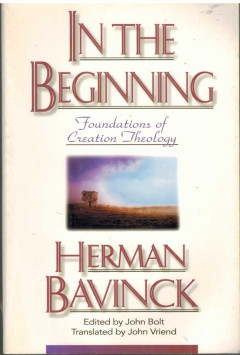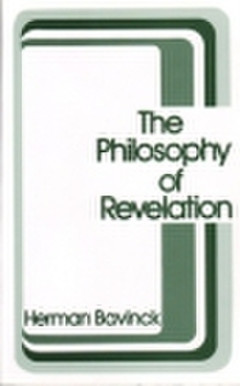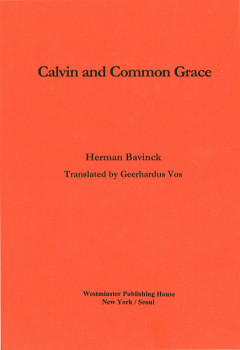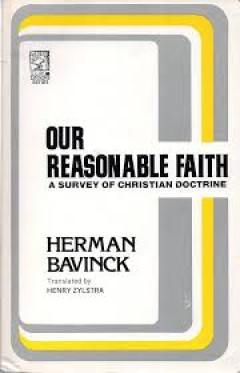Filter by

In the Beginning: Foundation of Creation Theology Herman Bavinck
Recent discussions of creation have centered on the skirmishes between creationists and evolutionists. However, as the editor of this volume points out, there is much more to the Christian doctrine of creation than scientific battles about origins and the age of the earth. To Herman Bavinck, the doctrine of creation, affirming the distinction between the Creator and his creature, is the startin…
- Edition
- -
- ISBN/ISSN
- 970801021901
- Collation
- Softcover; 291 hlm.; 15 x 23 cm
- Series Title
- -
- Call Number
- 231.765 B354

The Certainty of Faith
The timeliness of this book, first published in 1901, is shown by the fact that a great number of academic texts quote from it. "The Certainty of Faith" is one of the small but powerful classics written by one of the greatest theologians Holland has ever produced. Bavinck examines the difference between the certainty of science and that of religion historically, biblically, and theologically.
- Edition
- -
- ISBN/ISSN
- 9780888150813
- Collation
- Softcover; 97 hlm.
- Series Title
- -
- Call Number
- 234.2 B354

The Philosophy of Revelation
In addition to exegetical, biblical, and systematic theology, "there is room also for a Philosophy of Revelation which will trace the idea of revelation, both in its form and in its content, and correlate it with the rest of our knowledge and life," writes the author, one of the most distinguished Reformed theologians of the twentieth century. "Theological thought has always felt the need of su…
- Edition
- -
- ISBN/ISSN
- -
- Collation
- Softcover; 359 hlm.; 14.4 x 21.5 cm
- Series Title
- -
- Call Number
- 231.7 B354

Calvin and Common Grace
This short work first appeared in The Princeton Theological Review Vol. 7 No. 3 (1909), translated by Geerhardus Vos. Bavinck observes, "The Christian religion is by no means the sole content of history; long before Christianity made its appearance there existed in Greece and Rome a rich culture, a complete social organism, a powerful political system, a plurality of religions, an order of mora…
- Edition
- -
- ISBN/ISSN
- 970875524000
- Collation
- Softcover; 32 hlm.; 15 x 22 cm
- Series Title
- -
- Call Number
- 284.2 B354

The Christian Family
A century ago when this book was first published, marriage and the family were already weathering enormous changes, and that trend has not abated. Yet by God?s power the unchanging essence of marriage and the family remains proof, as Bavinck notes, that God?s ?purpose with the human race has not yet been achieved.? Neither a ten-step guide nor a one-sided approach, this book embodies a Christia…
- Edition
- -
- ISBN/ISSN
- 9781938948145
- Collation
- Softcover; 168 hlm.; 14 x 21.5 cm
- Series Title
- -
- Call Number
- 261.835 B354

The Last Things: Hope for This World and the Next
Written a century ago, Bavinck 's stately theology of the last things from death to the parousia offers sound exegetical guidance.
- Edition
- -
- ISBN/ISSN
- 9780853647614
- Collation
- Softcover; 208 hlm.; 15 x 24 cm
- Series Title
- -
- Call Number
- 236.00 B354

Our Reasonable Faith: A Survey of Christian Doctrine
"Our Reasonable Faith" is an accessible digest of the author's famous four volume "Reformed Dogmatics" and clearly presents the fundamental doctrines of Biblical theology. A practical handbook of theology, it is an outstanding and comprehensive statement of Christian faith and doctrine. Fully supported by Scriptural references, this book provides students, teachers, pastors, and lay readers wit…
- Edition
- -
- ISBN/ISSN
- 9780801005138
- Collation
- 568 hlm.
- Series Title
- -
- Call Number
- 230.42 B354

Dogmatika Reformed, Jilid 3: Dosa dan Keselamatan di dalam Kristus
Buku ketiga dari Dogmatika Reformed karya Bavinck ini mencakup doktrin tentang dosa dan keselamatan, dengan pembahasan meliputi asal-usul dosa, penyebaran dosa, natur dosa, hukuman bagi dosa; kovenan anugerah, Pribadi Kristus, perendahan dan peninggian Kristus dan urutan keselamatan.
- Edition
- 1
- ISBN/ISSN
- 9786023930074
- Collation
- Hardcover; 795 hlm.; 16 x 24 cm
- Series Title
- Dogmatika Reformed
- Call Number
- 230.42 B354

Dogmatika Reformed, Jilid 2: Allah dan Penciptaan
Pada saat natur skolastik dari theologi sistematik dikecam keras, Dogmatika Reformed menunjukkan manfaat dari perenungan yang cermat dan terus-menerus akan kebenaran Kristen yang setia kepada gereja dan berinteraksi dengan dunia akademis. Dogmatika Reformed dari Herman Bavinck telah menjadi rujukan theologi Reformed selama seratus tahun terakhir. Jilid 2 ini merupakan rangkaian dari keempat …
- Edition
- 1
- ISBN/ISSN
- 9789793292861
- Collation
- Hardcover; 812 hlm.; 15.50 x 23.50 cm
- Series Title
- Dogmatika Reformed
- Call Number
- 230.42 B354

Dogmatika Reformed, Jilid 1: Prolegomena
Pada saat natur skolastik dari theologi sistematik dikecam keras, Dogmatika Reformed menunjukkan manfaat dari perenungan yang cermat dan terus-menerus akan kebenaran Kristen yang setia kepada gereja dan berinteraksi dengan dunia akademis. Dogmatika Reformed dari Herman Bavinck telah menjadi rujukan theologi Reformed selama seratus tahun terakhir. Jilid 1 ini merupakan rangkaian dari keempat …
- Edition
- 1
- ISBN/ISSN
- 9789793292854
- Collation
- Hardcover; 812 hlm.; 15.50 x 23.50 cm
- Series Title
- Dogmatika Reformed
- Call Number
- 230.42 B354
 Computer Science, Information & General Works
Computer Science, Information & General Works  Philosophy & Psychology
Philosophy & Psychology  Religion
Religion  Social Sciences
Social Sciences  Language
Language  Pure Science
Pure Science  Applied Sciences
Applied Sciences  Art & Recreation
Art & Recreation  Literature
Literature  History & Geography
History & Geography